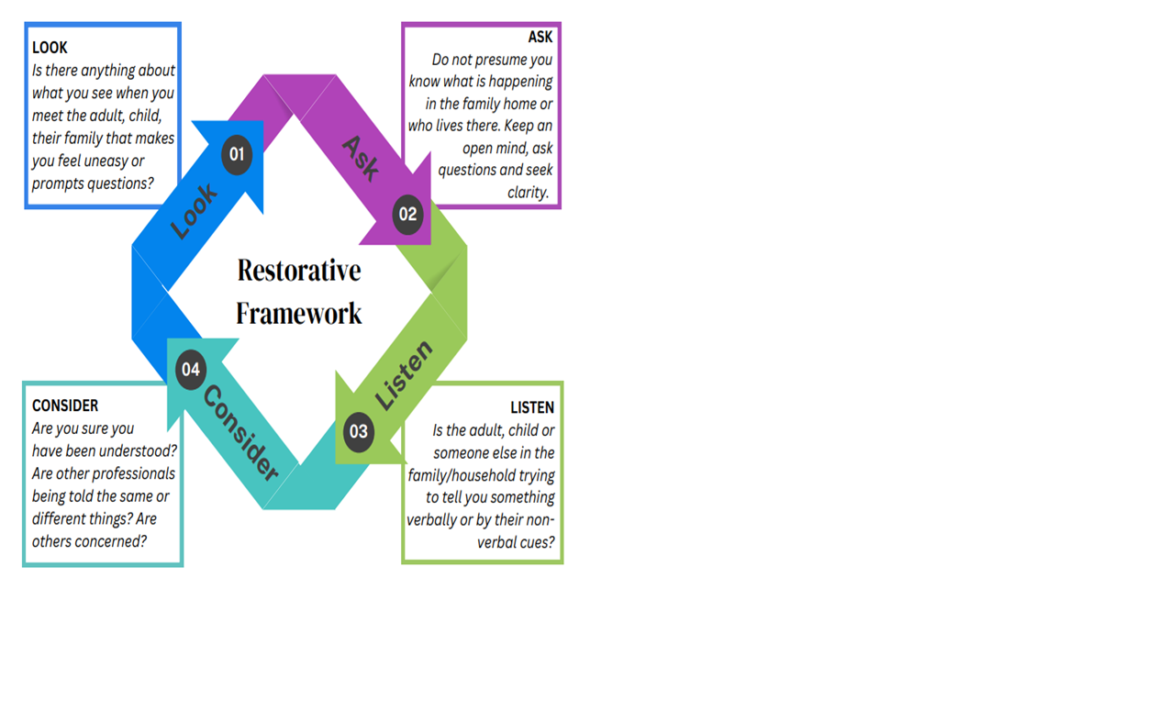What is professional curiosity?
Professional curiosity is having a healthy scepticism about what you are being told by the person you are speaking to, or a situation, and how this relates to safeguarding related issues across all ages.
It is about using all your communication skills to explore and understand what is happening to an individual or within a family rather than making assumptions or accepting service users’ versions of events or disclosures at face value.
Another way of saying professional curiosity is saying that as a practitioner you are using ‘respectful uncertainty’
Why is professional curiosity important?
Developing and maintaining a sense of professional curiosity is vital if practitioners are to work together to keep children and adults safe.
A lack of professional curiosity is identified regularly in adult and child safeguarding learning reviews
Being professionally curious enables opportunities to identify less obvious indicators of vulnerability or protective factors.
It is a mindset that allows us to gather relevant information and understand the risks an individual may be facing from their perspective.
It prevents assumptions being made when assessing an individual or families’ needs and safeguarding risk thus reducing incorrect information being shared so the right level of support and intervention can be offered.
It also allows us to understand the cumulative impact of multiple or combined risk factors, e.g. domestic abuse, drug and/or alcohol misuse, and mental health issues so we can identify if we need to refer onto other agencies including social care or specialist teams.
What works well in being professionally curious?
It is a combination of looking, listening, asking questions, and checking and reflecting on information received. It means:
Testing out our professional hypothesis and not making assumptions
Triangulating information from different sources to gain a better understanding of individuals and carers functioning
Getting an understanding of individual’s history, which in turn, may help us think about what may happen in the future
Obtaining multiple sources of information and not accepting a single set of details we are given at face value
Having an awareness of our own personal bias and how that affects how we see those we are working with
Professional curiosity is not being intrusive or nosey
Consider ‘Think Family / Think Household’ approach

